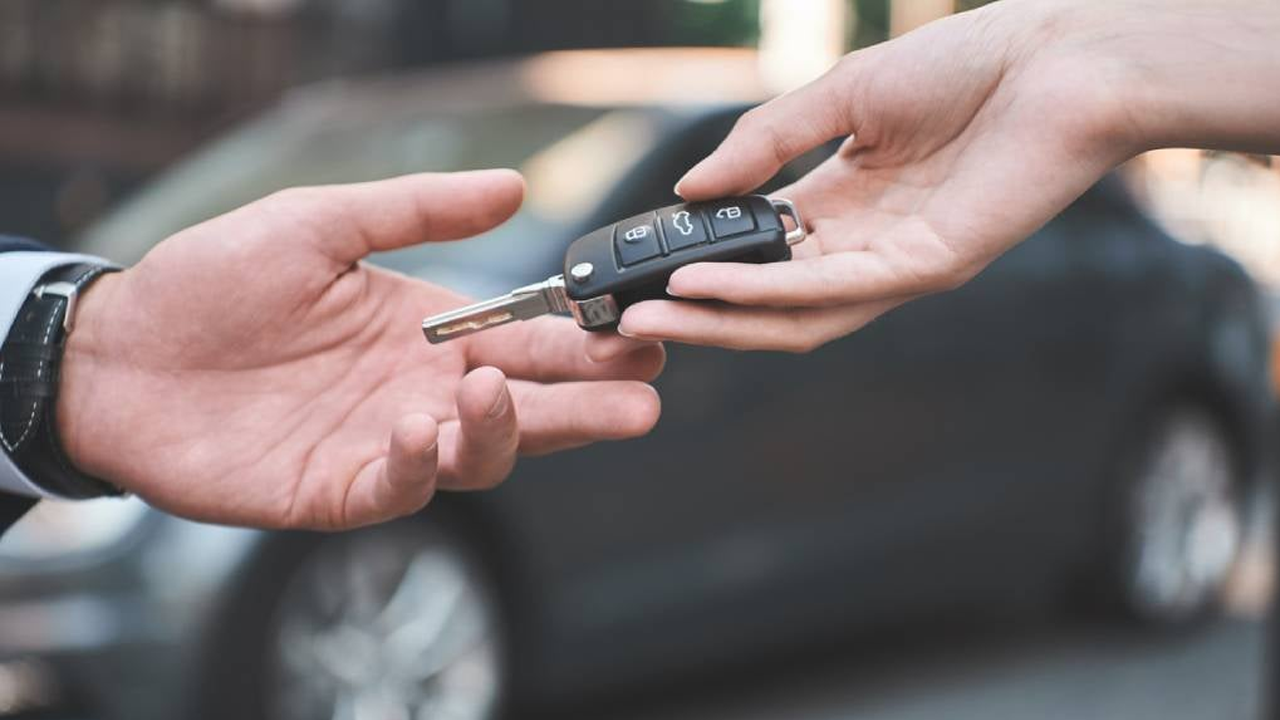Used car buying can be a tricky task, especially when you are on a budget. If you don’t want to overspend on a vehicle, it’s important to set a realistic budget and stick to it. Here are some expert advice and tips on how to set a budget when buying a used car.
The first step in setting a budget is to determine how much you can afford to spend on a used car. Inspection and history report fees should also be taken into account. You can start by calculating your monthly income and expenses to see how much money you can set aside for a car payment each month. It’s also important to consider other expenses that come with owning a car, such as maintenance and insurance costs.
- Start by researching car models that are within your budget.
- Check online listings for prices and compare them with your budget.
- Visit local dealerships and private sellers to see what they offer.
| Expense | Amount |
|---|---|
| Monthly Income | $3,000 |
| Monthly Expenses | $2,000 |
| Car Payment | $250 |
Once you have a list of car models that fit your budget, it’s time to start negotiating with sellers. Keep in mind that you should always try to negotiate the price down to a level that fits your budget. Red flags should also be taken into consideration during the negotiation process. If a seller refuses to provide a history report or makes excuses when you ask for an inspection, it’s best to move on to another car.
Finally, once you have found a car that fits your budget and meets your needs, it’s time to close the deal by financing and signing paperwork. Be sure to read all agreements carefully and understand the terms of your loan.
 Check the Car’s History: Why You Should Always Research a Used Car’s History
Check the Car’s History: Why You Should Always Research a Used Car’s History
If you’re in the market for a used car, then you know that it can be a daunting process. Not only do you have to find a car that meets your needs and budget, but you also have to make sure that it’s in good condition. One of the most important things you can do when buying a used car is to check its history. Here’s why:
Expert Advice: When you’re buying a used car, there’s a lot of information to take in. That’s why it’s a good idea to get expert advice. One of the best sources of expert advice is a car history report. This report will give you a detailed overview of the car’s history, including any accidents, repairs, and other important details.
- Tip: Always get a vehicle history report before you buy a used car.
- Tip: Look for any red flags in the car’s history report, such as accidents or multiple owners.
Inspection: Another important reason to check a used car’s history is to help with your inspection. When you’re inspecting a used car, you want to look for signs of wear and tear, but you also want to look for any major issues that might not be obvious. By checking the car’s history, you can get a better understanding of the car’s overall condition and identify any areas that might need extra attention.
Buying: The final reason to check a used car’s history is that it can help you make a more informed buying decision. If you know that a car has been in an accident, for example, you might decide that it’s not worth the risk. Or if you see that a car has had multiple owners in a short period of time, you might decide to look for another car instead. Having all this information can help you make a more confident decision when buying a used car.
| Key Takeaways: |
|---|
| Always check a used car’s history before you buy it. |
| Look for any red flags in the car’s history report, such as accidents or multiple owners. |
| Use the car’s history to help with your inspection and make a more informed buying decision. |
By taking the time to check a used car’s history, you can avoid potential pitfalls and make sure that you’re getting a car that’s in good condition. So if you’re in the market for a used car, make sure you do your research and look for any red flags in the car’s history report.
 Look for Red Flags: Common Issues to Watch for When Inspecting a Used Car
Look for Red Flags: Common Issues to Watch for When Inspecting a Used Car
Buying a used car comes with its fair share of risks. While purchasing a pre-owned vehicle can save you thousands of dollars, it can also be a headache if you make the wrong choice. Therefore, before you jump to a conclusion and buy a used car, it’s crucial to exercise caution and follow expert advice. One of the ways to do this is by inspecting the car thoroughly. This post will give you tips on what to look out for when inspecting a used car for potential issues.
Firstly, it’s wise to obtain a history report from a reliable source to understand the vehicle’s past accidents, repairs, and ownership. Even if the seller doesn’t disclose any negative history, you’ll have peace of mind knowing you’ve done your homework. With this report, you’ll be able to review the title, registration, maintenance records, and more. Be wary if there’s no history report available and move on to another used car option.
- Do a walk-around and note any dents, scratches, or rust on the car’s exterior
- Check the tire’s tread and wear patterns
- Look under the hood and check for any leaking fluids
- Examine the brakes and the exhaust system
The next step is taking the car for a test drive to assess the overall condition of the vehicle. Testing the car’s electrical systems, suspension, and transmission is essential, and it’s advisable to take the car on different terrain, such as uphill or downhill.
| Red Flags | What to Look For |
|---|---|
| Engine | Smoke from the exhaust, strange noises, or smells |
| Tires | Uneven wear or low tread depth |
| Fluids | Any leaks or low fluid levels |
| Body | Signs of repair, rust, or mismatched paint |
Finally, you can hire a professional mechanic to conduct a more intensive inspection of the vehicle. Although this will be an additional cost, it can save you significant money in the long run by assuring you that you’re not buying a lemon. While you may have to negotiate the price based on any issues the mechanic finds, it’s better to be safe than sorry when it comes to buying a used car.
In conclusion, looking for red flags and common issues when inspecting a used car can prevent you from buying a problematic vehicle. Remember to be thorough, ask questions, and follow expert advice at all times. Happy car shopping!
 Take a Test Drive: The Importance of Test Driving a Used Car Before You Buy
Take a Test Drive: The Importance of Test Driving a Used Car Before You Buy
When it comes to buying a used car, expert advice always stresses the importance of taking the car for a test drive before you make your purchase. This is because no matter how good a deal sounds or how amazing the car looks, the test drive is the ultimate way to find out if the vehicle is a good fit for you.
Tips for test driving a used car include taking it on a variety of roads, such as highways, local streets, and winding roads. This way, you can test its handling and acceleration capabilities in different environments. Additionally, be sure to pay attention to the car’s braking ability, steering response, and any unusual noises or vibrations.
- A test drive is especially important for older cars with high mileage or those that have been in accidents.
- It’s always a good idea to bring along a trusted friend or mechanic who can offer a second opinion and help you spot any potential issues.
Another way to ensure you’re making a wise buying decision is by ordering a comprehensive vehicle history report that can provide information on the car’s ownership history, accident history, and maintenance records. This will give you a better understanding of the car’s overall condition and may help you avoid potential issues down the road.
| Pros of taking a test drive: | Cons of skipping a test drive: |
|---|---|
|
|
When it comes to test driving a used car, there’s really no downside. It may take some extra time and effort, but in the end, it’s worth it to make sure the car you’re investing in is the right one for you.
 Get a Professional Inspection: When to Hire a Mechanic to Inspect a Used Car
Get a Professional Inspection: When to Hire a Mechanic to Inspect a Used Car
When you’re in the market for a used car, there are a few key things you should keep in mind to make sure you’re getting the best deal possible. One of the most important steps you can take is to get a professional inspection of the vehicle you’re considering. This will help you identify any potential problems and give you the information you need to make an informed decision.
First and foremost, it’s important to understand why a professional inspection is so important. When you’re buying a used car, there’s always a risk that the vehicle may have hidden problems or issues that aren’t immediately apparent. By having a professional inspector take a look at the car, you can get a thorough understanding of any issues that may be present.
- Expert advice: A professional inspector will have the expertise and experience necessary to identify any potential issues with the car. They’ll know what to look for and be able to spot signs of trouble that you may not be aware of.
- Tips: Along with identifying any issues with the car, a professional inspector can provide you with tips on how to maintain the vehicle and what to look out for over time to ensure it stays in good condition.
- Inspection report: After the inspector has thoroughly examined the car, they’ll provide you with a detailed inspection report outlining any issues they found. This report can be incredibly valuable in helping you negotiate the price of the car or determine whether or not it’s the right choice for you.
It’s also important to know when to hire a professional inspector. While it’s always a good idea to have an inspection done before you buy a used car, there are certain situations where it’s especially important to do so:
- If you’re buying a car from a private seller: Private sellers are often not held to the same standards as dealerships when it comes to disclosing information about the car. Hiring a professional inspector can help ensure that you’re aware of any potential issues before you make a purchase.
- If you’re considering a car that has high mileage: As cars get older and accumulate more miles, they’re more likely to have issues that need to be addressed. A professional inspector can help identify any potential problems that may be present due to the car’s high mileage.
- If you’re considering a car with a complex or exotic engine: Cars with complex or exotic engines can often be more difficult to diagnose and repair. Hiring a professional inspector who specializes in these types of cars can help ensure that you’re aware of any potential issues before you make a purchase.
Ultimately, if you’re in the market for a used car, a professional inspection is an invaluable tool that can help you make the best decision possible. By hiring an inspector, you can get expert advice, tips on maintenance, and a thorough inspection report that can help you make an informed choice.
 Negotiate the Price: Tips for Haggling with Used Car Sellers
Negotiate the Price: Tips for Haggling with Used Car Sellers
Are you planning to buy a used car? It’s important to know how to negotiate the price with used car sellers. Here are some tips to help you get a good deal:
- Do your research: Before negotiating, research the car’s value using online tools that offer information on average prices for the model and year of the car you’re interested in. This will give you a realistic idea of how much you should pay.
- Be confident: Don’t be afraid to make a lower offer than the asking price. Used car sellers are often willing to negotiate.
- Show interest: When negotiating, show the seller that you’re interested in buying the car but make it clear that you’re considering other options too. This can help you get a better price.
When negotiating, don’t forget to ask for a detailed history report on the car. This will give you an idea of any potential issues that may affect the car’s value. Ask the seller about any repairs or accidents the car has been through, and make sure to inspect the car thoroughly before making an offer. Look for any red flags, such as rusted or damaged parts, unusual smells, or strange noises.
| Good Negotiation Points: | Bad Negotiation Points: |
|---|---|
| -Point out any flaws you find on the car | -Don’t be disrespectful or insulting towards the seller |
| -Show the seller similar cars with lower prices | -Don’t immediately agree to the seller’s asking price |
| -Be prepared to walk away if necessary | -Don’t be overly aggressive or confrontational |
If you’re having trouble negotiating or feel like you need some expert advice, consider hiring a professional to help you through the process. A mechanic or used car specialist can inspect the car and help you make a fair offer. Remember to stay within your budget and only agree to a deal you’re comfortable with. When you’re ready to close the deal, make sure you understand all the paperwork involved and have secured financing if needed.
 Close the Deal: What You Need to Know About Financing and Signing Paperwork for a Used Car
Close the Deal: What You Need to Know About Financing and Signing Paperwork for a Used Car
So, you’ve found the perfect used car and have gone through all the necessary steps of buying it. The only thing left to do is to close the deal, which is where financing and paperwork come into play. Here’s some expert advice on what you need to know about these final steps:
First things first, make sure you have the necessary funds to pay for the car. If you’ve already set a budget and have secured financing, then you’re good to go. Keep in mind that financing for used cars typically has higher interest rates than new cars. If you’re purchasing from a private seller, make sure to have the payment in a secure form such as a cashier’s check or wire transfer.
- Have a glimpse of your budget
- Choose to take a loan from a reputable lender
- Know what’s negotiable
Next, it’s time to sign the paperwork. Make sure to read everything carefully before signing. If you’re unsure about anything or if something seems off, don’t be afraid to ask questions or request changes. It’s important to understand what you’re agreeing to before signing on the dotted line.
When it comes to paperwork, there are a few things you should make sure to have on hand:
| Document | Purpose |
|---|---|
| Bill of Sale | Proof of purchase |
| Title | Proof of ownership |
| Registration | Proof of legal use |
| Insurance | Proof of insurance coverage |
Make sure to keep all of these documents organized and in a safe place for future reference. Lastly, don’t forget to transfer the title and registration in your name as soon as possible.
Closing the deal on a used car can seem daunting, but with the right preparation and knowledge, it can be a smooth process. with this tips , you can close the deal with confidence and drive away in your new-to-you car.



